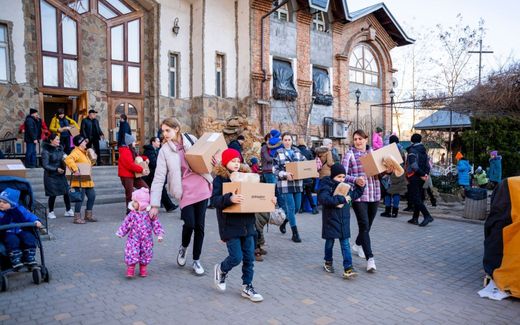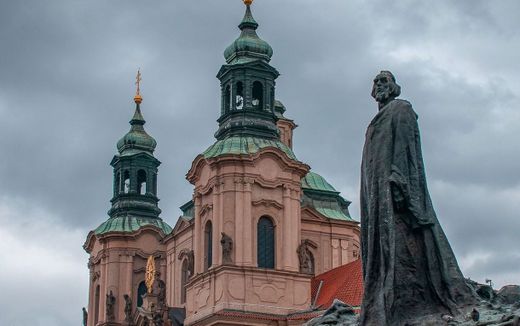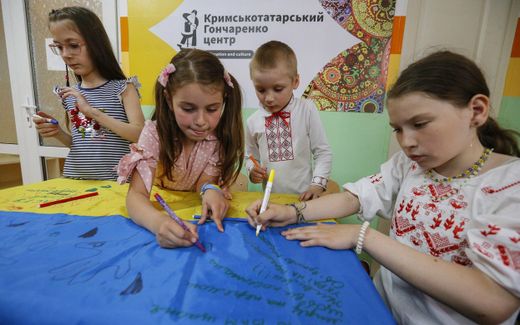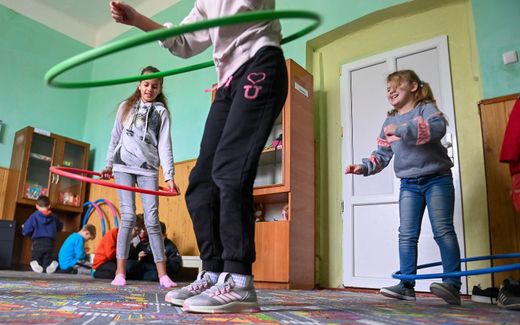For Christian Hungarians in Ukraine, Budapest is closer to the heart than Kyiv
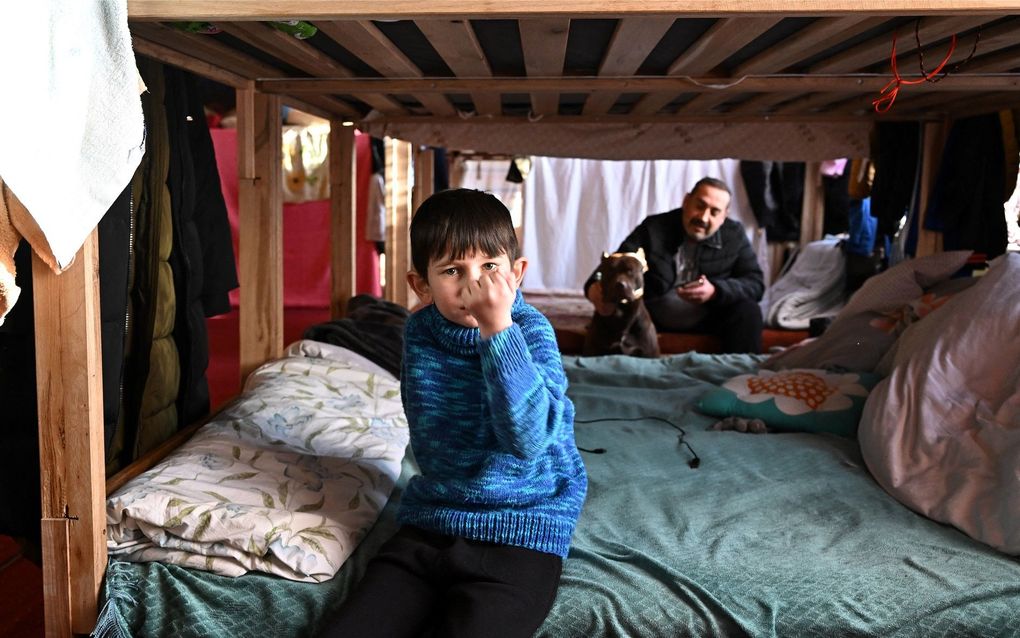
Although the relatively safe Transcarpathia experienced little of the war in terms of fighting, it takes care of hundreds of thousands of refugees. Photo AFP, Attila Kisbenedek
Eastern Europe
The men in southwestern Ukraine no longer attend church. They stay home or abroad for fear of being drafted into the army. It is illustrative of the position of ethnic Hungarians in this war. Still, the Gospel finds fertile ground.
Despite the war, ethnic Hungarians in the Ukrainian province of Transcarpathia have little sympathy for Kyiv. Indeed, the Carpathian mountains, which separate this region from the rest of Ukraine, only seem to be getting higher because of Kyiv’s policies. The Hungarian minority feels disadvantaged and discriminated against.
Someone who came into the world in this region just before World War I could have lived in five different countries without moving. After the breakup of Austria-Hungary, Transcarpathia was successively part of Czechoslovakia, Hungary, the Soviet Union and Ukraine.
Now, the decisions for Transcarpathia are made in Kyiv, but that is not a given. Transcarpathia’s tumultuous history also creates demographic isolation from the rest of Ukraine: it is a province full of minorities. Official statistics say some eighty per cent of the population is Ukrainian, but those figures include Ruthenians. Critics argue that the Ruthenians should be counted as a separate group because they stand between the Slavic and Hungarian peoples.
With about 150,000 people, the Hungarian minority makes up about ten per cent of the Transcarpathian population. The vast majority are members of the Reformed Church, part of the Hungarian Reformed Church. Many pastors, therefore, received their training in Hungary.

Classroom
Someone who had many future pastors in the classroom is József Győri. The now-retired Hungarian was a teacher and principal at one of two Reformed high schools in Debrecen, Hungary’s second city. He has close ties to Transcarpathia and just returned from a trip to the region.
“People here are very ambivalent about the war,” Győri says. Despite their dislike of Putin’ ’s regime, it is not only Russia that they accuse of violating human rights. Several actions by the Ukrainian government fueled fears among Hungarian minorities of losing their identity.
Ukraine’s 2017 language law is one such example. That law, particularly aimed at Russian speakers, required schools to teach at least 70 per cent of classes in Ukrainian. That sparked outrage from the Hungarian minority. “The teaching methods are the same as in other parts of Ukraine,” Győri said. “That makes it harder for children growing up in Hungarian-speaking areas to keep up.”
Bonus
While Hungarians feel their rights curtailed by Kyiv, the government in Budapest is ready to help their compatriots abroad. “You can hardly imagine how much the government does for the Hungarian community,”
Győri states. “Most church congregations are supported by the Hungarian government. And when a doctor in Transcarpathia speaks Hungarian during his consultation hours, he gets a bonus from Budapest.”
Prime Minister Orbán’s support program also has a political aspect; electoral gain. On the eve of the 2014 parliamentary elections, he gave voting rights and passports to Hungarians living outside the country’s borders. That earned him more than 90 per cent of the diaspora vote each time in the following three elections.
“Of course, it’s political,” Győri argues. “But for the people of Transcarpathia, it is the reality: Budapest seems to care more about them than Kyiv. For example, hundreds of tons of humanitarian aid came from Hungary to assist refugees. There came only a little from the Ukrainian government.”
Vineyards
The discontent also affected the combat readiness of Hungarian men. When war broke out, volunteers were ready to fight, Győri says. “But many men are now afraid of being called up to fight in an endless war.” They cannot cross the border because their Hungarian passports say they are Ukrainian citizens. That’s why they mostly go into hiding. “They hide in vineyards and small houses and come out at night.”

This is also reflected in church life. In church, there are mostly women and older men, Győri states. “The young don’t dare to come for fear of being called to serve in the military.” This absence also has organizational consequences. For example, much discussion exists about whether church meeting decisions are still valid with so few voters.
However, although the men cannot be physically present, they engage digitally. And that's something Győri is seeing more of. "The number of people listening in on online services is greater than ever," he says. According to the Hungarian, this is due to the pandemic. "If there hadn't been Covid, we wouldn't have been able to set this up like this."
Gospel
Within Europe, Győri says, Transcarpathia is a region that has perhaps suffered the most in history. But that also has an upside. According to him, it is precisely this region where the Gospel finds fertile ground. “An old pastor shared a story about how two or three people were baptized in a certain village in 1943. By 1950 there were 200, which is a miracle.”
And such stories can also be found in contemporary Transcarpathia, Győri says. He tells of a refugee Ukrainian woman who said she had lost everything. “But when she was introduced to the Bible, she was given a new life. Such a thing cannot happen in peaceful times.”
Documentary
Hungarian Christians in the border region of Hungary and Ukraine host many refugees. Earlier this year, they made a documentary about how they work.
Related Articles



